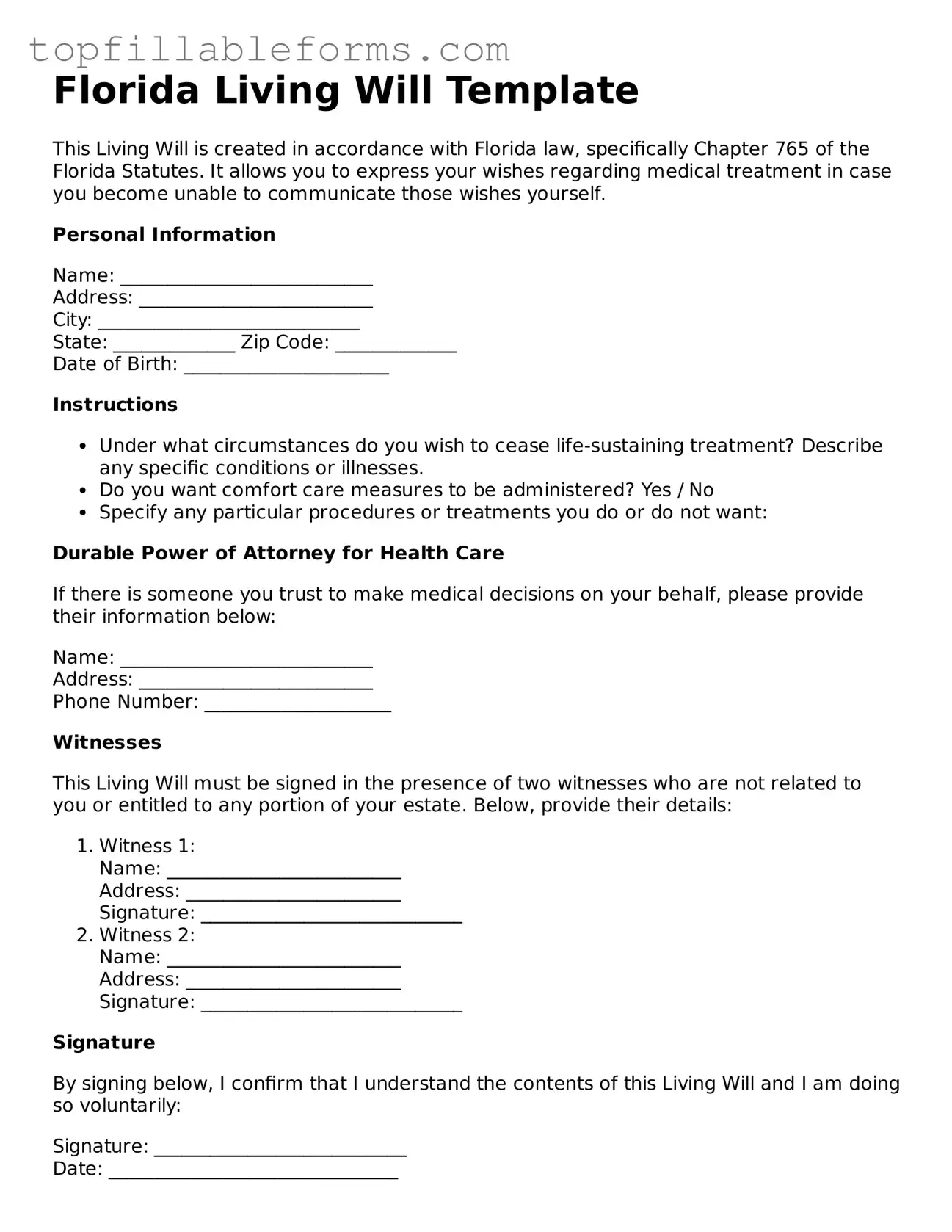Attorney-Verified Living Will Template for Florida
A Florida Living Will is a legal document that allows individuals to express their wishes regarding medical treatment in the event they become incapacitated. This form provides guidance to healthcare providers and loved ones about the types of life-sustaining measures one wishes to receive or decline. Understanding this document is crucial for ensuring that personal healthcare preferences are respected during critical moments.
Open Living Will Editor Here

Attorney-Verified Living Will Template for Florida
Open Living Will Editor Here
Finish the form now and be done
Finish your Living Will online by editing, saving, and downloading fast.
Open Living Will Editor Here
or
▼ PDF File
